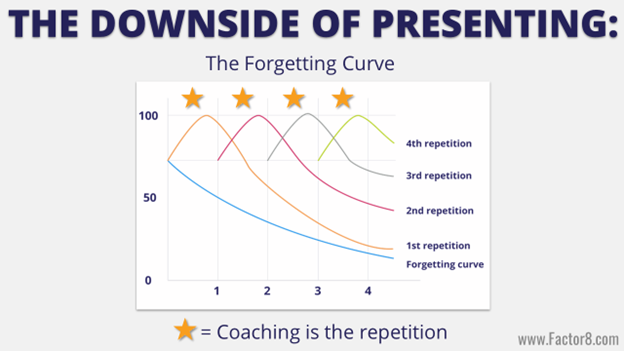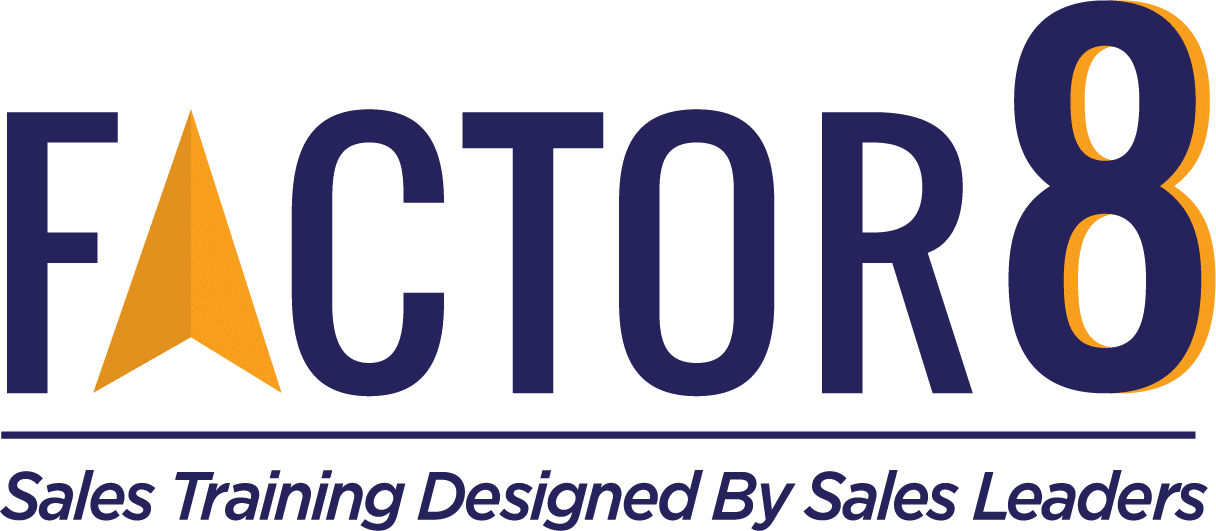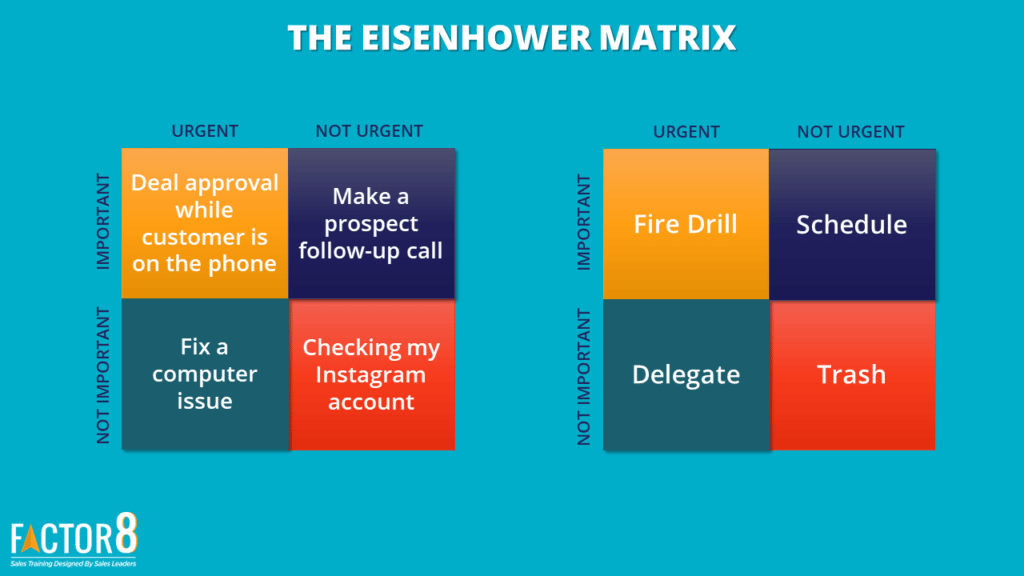Learning to be a great sales coach is hard – really hard. It’s the hardest thing we teach new managers who were formally reps. Now, it’s not as hard as climbing Mt. Everest or teaching your grandma how to order presents online, but it’s rough.
It’s the #1 skill that most new managers struggle with. If you’re a naturally phenomenal coach, congrats (seriously!), but the rest of us are struggling. Why? We don’t often know what defines great sales coaching. So let’s break it down…
The Difference Between Presenting vs. Facilitation vs. Coaching
The lines are often blurred between presenting, training, and sales coaching, especially when we don’t have staff and resources dedicated to each. Why does it matter?
Well, does this sound familiar?
“I’VE TOLD THEM 100 TIMES!!”
We’ve heard it from managers and VPs (and parents 😉 ). It’s rough, folks. If people aren’t retaining what you’re telling them to do, they obviously aren’t going to do it. So we have to back up a few steps and make sure it gets in their brain and sticks.
What is presenting?
We define presenting as…Introducing new information through speech often using slides/visual aids.
Watching a webinar? You’re listening to someone presenting. Sitting in a lecture hall in college? That’s presenting.
Now the downside to presenting is something called The Forgetting Curve. If you’re in sales enablement or training, you’ve likely heard of it. It shows us that by the end of the day, reps have lost 50% of what you taught them. In a week, they’ve lost 90%. So it’s pretty obvious why they aren’t doing what you told them to do – they can’t even remember it!
There are two ways you can beat The Forgetting Curve.
- By utilizing great facilitation or training. The better (and more interactive) the training, the more likely the skills will stick. The more often reps actually do something, the more likely they’ll remember it and the more likely you’ll get results.
- Through coaching. All you have to do is tell people what to do and then 1:1, 4x throughout the week, go and coach them on the same skill. You’ve got time to do that, right? 😐 Nope! That’s why good facilitation is the better option.

What is facilitation?
Folks the name of the game to get people to do what you need them to do, to get results, to get commission checks is: RECALL. They can’t do it if they can’t remember it.
In order to obtain recall, you need to have good facilitation or training. Unfortunately, most facilitation is broken. You can’t just tell someone to do something and expect them to do it perfectly, they need to practice.
Grab a sheet of paper and draw a picture of the Statue of Liberty based on memory. Assuming your side hustle isn’t as an artist, it’s probably going to look like something a child drew. Why? Well, when was the last time you drew something? Drawing is something we did a lot as a kid until other things became more exciting or interesting. We quit practicing, and when we quit practicing, our skills freeze.
For many of us, teaching is also a skill frozen in time. We think of teaching and we see ourselves sitting in a lecture hall with someone talking at us, telling us what to do. And we know that’s not how people learn.
That’s why we’ve got to redefine teaching and facilitate instead.
We define facilitation using the acronym CUP. It stands for…
- C = Connect. If you want people to remember things, apply them, and do what you tell them to do, you have to help them connect with the information (it’s called Adult Learning Theory). It basically says that adults have filing cabinets in their heads. If you tell a kid something new, they’ll accept it as fact. Adults won’t even log it until you help them find the file folder. That means you’re helping them connect with it.
- U = Use. Great training takes longer because we’re facilitating them actually getting their hands on it. I’ve watched people do systems training where their team is just sitting and watching. Totally hands-off, and totally a waste of time. If we want people to understand, we have to get them to use it.
- P = Practice. We absolutely, positively have to practice. End of story.
By using the CUP method for facilitation, that’s how we beat The Forgetting Curve. Expect 70-80% recall. Get some buy-in along the way, a little practice and roleplay, synthesis with what they do on the job, and you’re looking at 80-90% recall. Plus, you’ll create new habits.
What is sales coaching?
Everyone does it a little differently, but a lot of people confuse sales coaching with leading, but with a few questions sprinkled in.
We define sales coaching as… Ongoing development method used by leaders using questions to inspire and deliver personal feedback on skills.
Pay attention to the bolded words. If you’re just giving people advice or there are 25 people in the room, that’s not coaching. When you’ve got a team of reps in the room, what you’re really doing is presenting.
ACTION: Go and CUP check your virtual sales training. If you’ve got a lot of videos and little practice, people aren’t doing what you tell them to do. Leaders, if you do a lot of announcing without any coaching, follow-up, or roleplays, they’re not doing what you tell them to do. And when it’s something critical like learning how to sell and be successful in new hire onboarding, you’ve got to do all 3.
READ: Why You Need a Sales Training and Enablement Budget
The Power of Sales Coaching
If behavior change is critical, start with the 1-2-3 punch. Begin with the presentation, then facilitate, and then coach. Now, coaching alone CAN be powerful (but not how you think…)
Great coaches have 1 thing in common: they motivate people. Motivation is the key to everything. It affects recall (information + caring = recall).
READ: Tips for Enablement Leaders to Increase Sales Coaching Focus
Our job as managers and coaches is to ensure our reps leave our coaching sessions feeling like superheroes. That’s why we teach the 5:1 method – share 5 positives and 1 area for improvement. It’s also the #1 mistake new managers make. Why? We hear the laundry list of things that went wrong on a sales call and can’t help but tell them every single one of them.
The power of sales coaching is in the questions you ask. Said in another way:
“Leaders who ask more, get more.”
That’s why we coach in questions. It’s called “Instinctive Elaboration”. It’s the secret behind the Factor 8 SWIIFT℠ intro where we’re literally hijacking the brain of the prospect to answer our questions even if they didn’t mean to and it’s why it works to get them talking.
It works like this: how old are you?
Did a number pop in your head? Now it’s halfway out of your mouth.
The brain stops what it’s doing and starts answering questions whether it wants to or not.
Here’s more proof: how much do you weigh?
I know you didn’t want to share it, but you thought it, didn’t you? 🙂
DOWNLOAD: 20 Ways to Increase the Sales Coaching Focus at Work
The Best Sales Coaching Questions Ever (and Why!)
We’ve spent years mastering the art of coaching and have compiled the best sales coaching questions ever (and they’re backed by science).
1. “Tell me about a time you had to do something similar?”
This helps them connect. Unfortunately, not all of us have the time or tech to do the CUP theory. We use a lot of video, but do videos actually teach? We don’t think so (read more about that here.)
2. “Why are you so good at this?”
You can ask this to anybody in any coaching session and something happens in the brain called “Confirmation Bias”. If you ask them a ‘why’ question, they’ll look for the reason that it’s true. This instantly boosts motivation.
3. “What happens when you knock this out of the park?”
This question builds confidence by creating mental imagery, scientifically known as “Functional Equivalence.” You’ve probably heard it with Olympic athletes where they picture themselves doing their gymnastics routine perfectly in their head and it fires the neurons as if they’re doing it. If you can get your reps to picture success, they’re more likely to achieve it.
There’s also something called the “Pygmalion Effect” which says that if your manager believes in you, you’ll believe in yourself more. Read differently:
“Leaders who expect more, get more.”
4. “What are you most proud of on that call?”
If anybody has reps that beat themselves up a little bit, this question is for you. The brain will search for an answer and find it – guaranteed.
5. “What should we do next?”
This is all about active recall; going in and finding the information in the brain. The other question we ask is “what was the customer thinking?” This is out of our head and our noise and puts ourselves into the shoes of the customer which is what we’re trying to do. It shortens ramp time, folks. Ramp time isn’t about me not knowing it, it’s about me not knowing when to use it. And if we can burn the pathways in the brain to recall the information we need at the right time, that’s how we get people to learn and apply skills faster.
6. “What one thing is most important to work on?”
You can use this in any coaching interaction anywhere and the science behind it is called “Implementation Intention.” Studies show that if you work on one thing and put a plan in place, it’s 2-3x more effective.
Coaching your team is more than just sharing information with them—it’s about really changing the way they think and act. By incorporating presenting, facilitating, and coaching, you’ll move from just talking at your team to actually sparking real behavior change.









